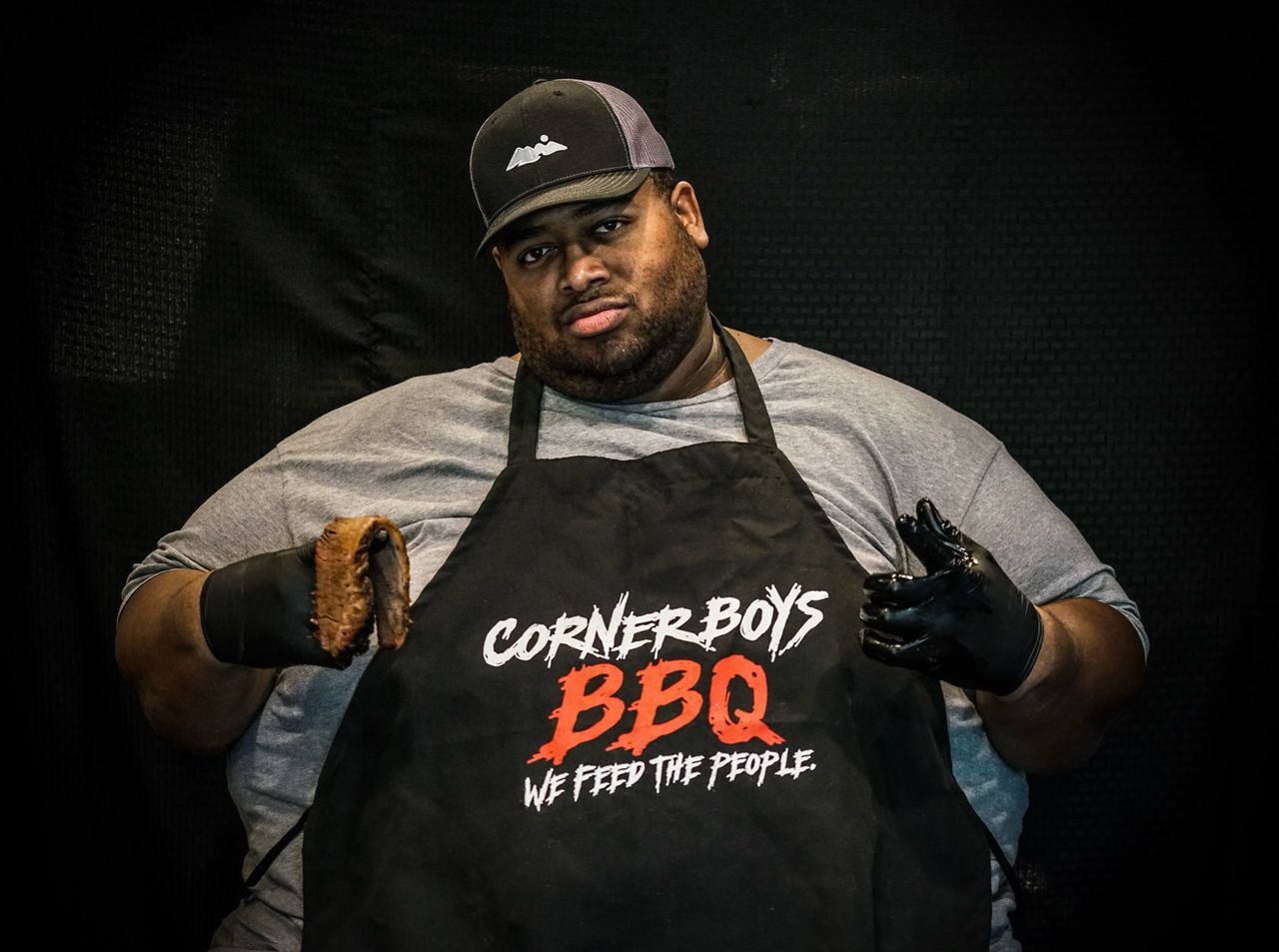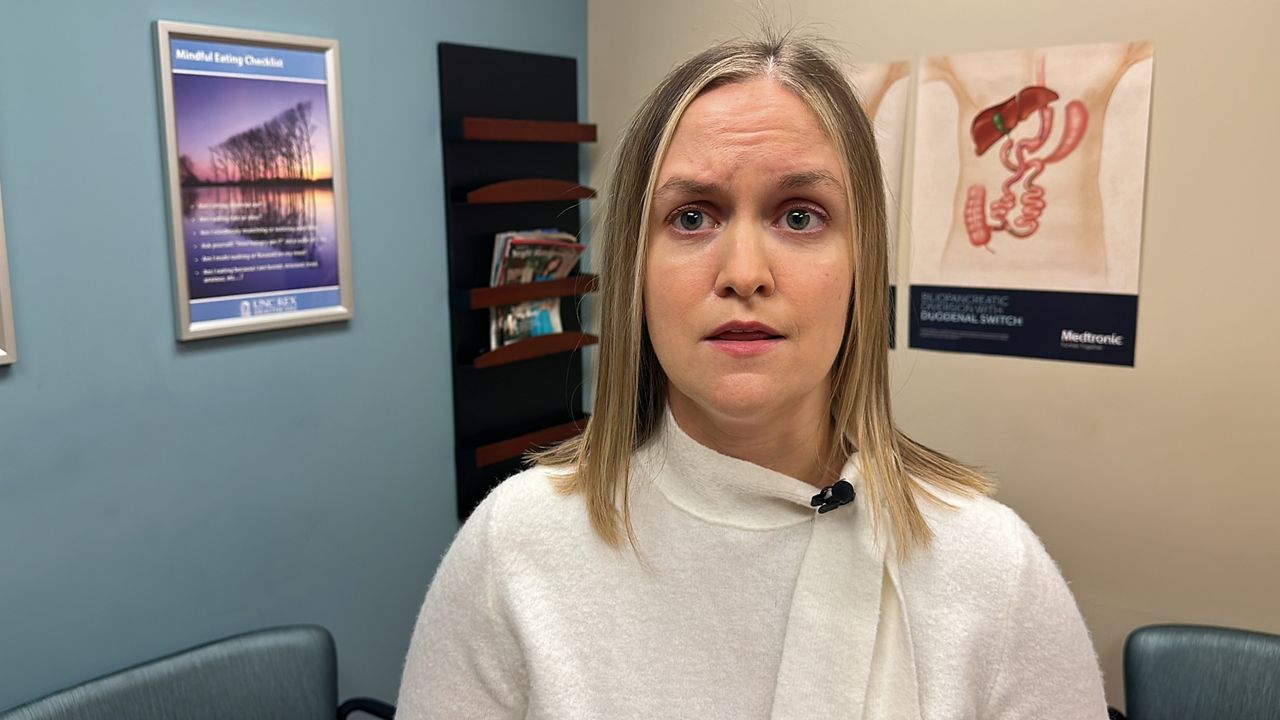Maintaining a healthy weight is a top priority for many living in North Carolina this year.
It’s a concern across the state as the Centers for Disease Control and Prevention listed the state as having close to a 34% prevalence of obesity.
James Sampson is no stranger to this issue.
“Think about going into a restaurant and having to know where you are going to before you get there just to see if you are comfortable or not,” Sampson said.
That coupled with a love for food that was not always healthy in the Deep South amplified the problem over time.
“How about I jump on your back and let’s see you walk around the parking lot,” Sampson said.
Sampson has battled weight loss issues for most of his life. At his largest, Sampson said he tipped the scales at over 800 pounds.
“Think about it. When you have too much weight on you, you have too much that you can’t carry,” Sampson said.
It wasn’t sustainable for a people person who had to be on his feet as a self-taught pitmaster.
His livelihood, Corner Boys BBQ, has some of the tastiest pulled pork, rich mac n’ cheese and cooked meats for this side of North Carolina.

When he opened the food truck in 2015 the problem wasn’t serving customers, it was moving around inside the food truck at his stature.
“It’s really hard. Think about doing it every day, 365 days a year, 24 hours a day,” Sampson said.
The biggest mindset change that led to a change in lifestyle came after a serious fall in the shower a few years ago.
“The last straw was … I’ve got to go back to this. I was taking a shower. I fell in the shower. It took me and my wife to get me out of the shower. It took me literally three hours to get off the floor. At that moment I was done. It broke me, and I had to do something,” Sampson said.
Through the years he’d tried everything from active exercise to certain medications. The food truck owner made what was then a serious decision: to undergo bariatric surgery. Since the surgery three years ago, he has undergone continual lifestyle makeover to more easily transition to his smaller self.
Most of all, he didn’t want to die because he says he had a long life to live. Sampson said when push came to shove he visited Dr. Linda Youngwirth, a bariatric surgeon at UNC Rex Hospital.

“The surgery isn’t the end all be all,” Youngwirth said. “The surgery is just a tool to help them achieve not only their weight-loss goals but also to resolve some of their obesity-related comorbidities like diabetes, sleep apnea, high blood pressure, things like that.”
Youngwirth expounded that thought.
“Obesity is impacted by your genetics, your hormone levels, your environment,” Youngwirth said.
Then using an anatomical picture of the human stomach taped to the wall of a patient room, Youngwirth broke down how Sampson’s bariatric surgery works.
“What we do is we place a tube into the esophagus into the stomach,” she said. “These operations impact the gut hormones. The hunger hormones decrease and the full hormones increase.”
Patients who are candidates for this type of surgery must take four nutritional classes with dietitians, a psychology evaluation, a full set of labs (vitals and more), either an upper endoscopy or upper GI and an ultrasound of their liver and gall bladder before surgery commences.
The bariatric surgeon said food is only a component of the equation.
“I think a lot of patients blame themselves and think, 'Why can’t I just eat less and exercise more?' But obesity isn’t just calories in versus calories out. It isn’t just someone consuming too many calories and not working out enough,” Youngwirth said.
Sampson said prescription changes and day-to-day choices shrunk him down a couple hundred more pounds before the surgery. Youngwirth said losing hundreds of pounds in weight isn’t mandatory but felt important in this case to Sampson before going under the knife.
“It’s about living your life and enjoying the things you enjoy,” Youngwirth said.
She said while the physical procedure is a large focus, it impacts more than your gut.
“As much as I am operating on their GI tract, I’m also operating on their brain,” Youngwirth said.
According to Youngwirth, the surgery addresses three areas: Restriction, hormones and malabsorption. The surgery doesn’t allow them to eat as much as they could before surgery. The hormonal aspect is they don’t feel as hungry as they did before surgery so their full hormones are higher. Addressing malabsorption tackles and reduces how many calories the body can absorb after surgery.
Sampson is down more than 500 pounds from his previous size. His current weight hovers around 315 pounds.
The advocate for healthier living has this message for those feeling like they’ve hit rock bottom when it comes to weight loss.
“The main thing that I really want people to do is that they got to make the decision that they want to lose weight, they want a lifestyle change,” Sampson said. “Having a way of life and being able to breathe and not be out of breath. To be able to walk around and not be breathing heavy, that’s awesome."
“Don’t be ashamed of it. Go get the help,” Sampson said.
UNC Rex bariatrics offers lifelong surveillance to patients who have undergone serious weight-loss surgery.
A UNC Health spokesperson said patients who previously had the surgery can come back and talk with prospective patients and visit patients in the hospital before and after surgery, to provide reassurance and support, and answer questions.



